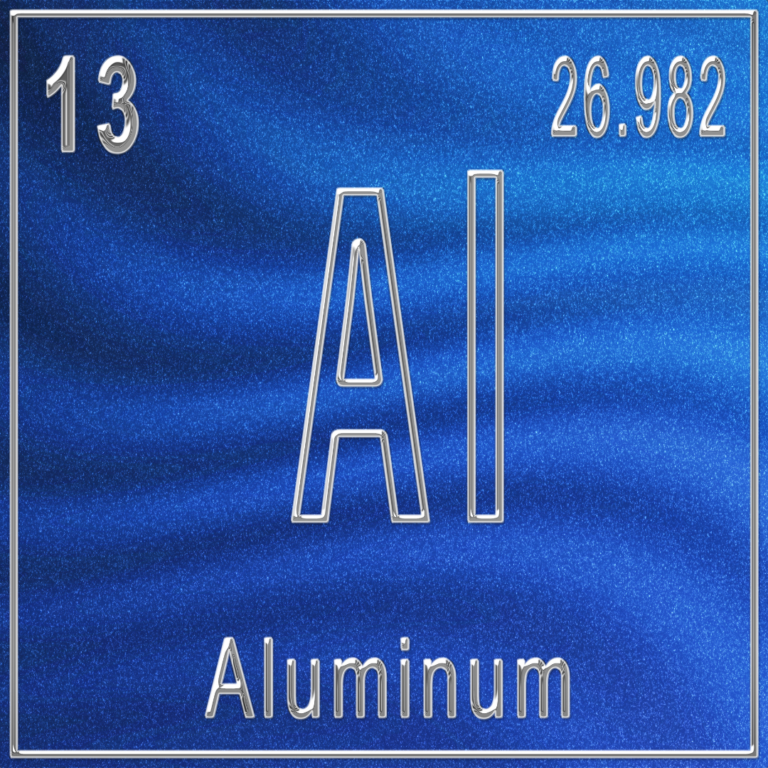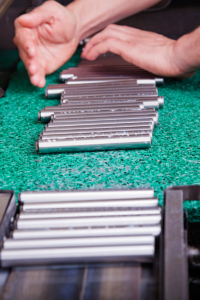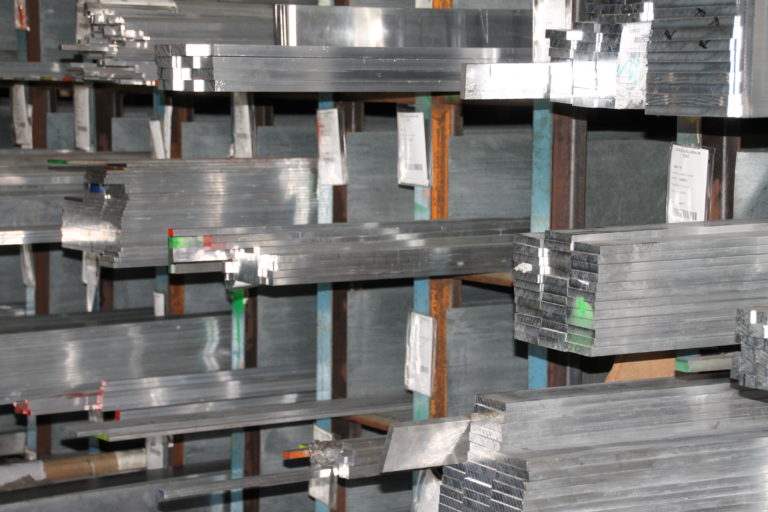Although it’s the most abundant metallic element in the Earth’s crust, aluminum never occurs in its metallic form in nature. Its compounds, however, are present in nearly every form of vegetation, mineral, and animal. So, how is aluminum made?
When the silvery-white metal is isolated (first achieved in 1825), we wind up with the periodic element Aluminum (Al). Thanks to the modern method of producing aluminum, it surpassed copper in world production of nonferrous metals back in the 1960s. Today’s seamless process – electrolysis of purified alumina dissolved in cryolite – has allowed aluminum to remain widely used in several settings for decades. In this article, the aluminum distributors at Pennsylvania Steel Company break down everything you need to know about aluminum and its production process.
Basic Properties & Structure
What is aluminum?
Natural aluminum compounds are universally present in igneous rocks and various gemstones. Ancient Egyptians and Babylonians used organic clay for assorted projects, including pottery, medicines, and textiles. It wasn’t until the late 18th century that experts recognized aluminum for its application as a metal.
The versatility of this metal is due to its ability to be combined with other alloys (ex: magnesium or silicon) in small amounts to diversify its applications. Although pure aluminum is malleable and somewhat brittle, commercial aluminum is very strong while still relatively flexible.

What's the difference between aluminum and steel?
Steel is more rigid than traditional aluminum and is more durable because it’s more than twice as dense. Both steel and aluminum consist of a combination of two elements. Steel contains iron and carbon, while aluminum contains bauxite and cryolite.
Features & Manufacturing Process
How is aluminum made?
Stage 1: Finding the Ore
- As previously mentioned, the metallic aluminum alloy doesn’t appear anywhere in nature. As a result, it can only be extracted from naturally occurring compounds.
- Ore is the natural rock or sediment that contains one or more valuable minerals in the form of clay, slate, or granite sediments. The essential aluminum ore is bauxite. Bauxite is commonly found in deposits close to the Earth’s surface and contains about 52% aluminum oxide with iron oxide impurities.
Stage 2: Mining
- Investigatory drilling allows geologists and researchers to determine the location of bauxite deposits for mining alumina. Once found, they extract the bauxite and remove the earth using various methods, including blasting, drilling, and ripping with specialized bulldozers. The resulting product is alumina: the raw, crystalline form of bauxite.
- Four tons of high-quality bauxite will produce approximately two tons of alumina, from which producers can manufacture about a ton of pure aluminum.
Stage 3: Refining the Bauxite (Using the Bayer Process)
- In the first step of the Bayer Process (Digestion), the bauxite is ground, mixed with caustic soda, and pressurized. This step separates unwanted impurities and forms what is known as sodium aluminate.
- The second step (Clarification) involves reducing the pressure, removing the separated impurities, and cooling the clarified solution.
- In step three (Precipitation), the addition of aluminum hydroxide seed crystals results in precipitation, causing the aluminum to become solid.
- The fourth and final step (Calcination) entails a thermal treatment process using rotary kilns. This heating method removes remaining impurities, and the subsequent material is the alumina or aluminum oxide.
Stage 4: Smelting
- The last stage of aluminum processing is called smelting, also referred to as the Hall-Héroult process, invented in 1886. Smelting, which takes place in steel reduction pots, extricates the aluminum from the alumina.
- The resulting molten solution – 99.8% pure – is poured into molds and cast. Subsequently, it can be alloyed with other metals or refined to create super pure aluminum (99.99%).
Why choose aluminum metal for my project?
If you’re trying to determine the appropriate alloy for your construction project, you may consider multifaceted aluminum for its many benefits:
- Lightweight
- Flexible
- Impermeable
- Recyclable
- Odorless
- Corrosion Resistance
- Ductility
- Electrical and Thermal Conductivity

Applications & Sustainability
What is aluminum used for?
Since this alloy is so versatile, its applications span enterprises and industries of all types. Some of the most recognizable aluminum functions include aerospace construction, food-processing equipment, household appliances, and electrical conductors. Because of its high corrosion resistance and conductivity, aluminum is ideal for manufacturing various consumer and commercial products.
If you want to use aluminum in your next project, check out our tips for safe aluminum welding.
Is aluminum sustainable?
While the mining and electricity used to make new aluminum have an environmental impact, many consider aluminum to be a sustainable metal because of its ability to be recycled. Aluminum’s durability means it can be recycled over and over without a loss of quality. In fact, almost 75% of aluminum ever made is still being used today. Plus, aluminum is lighter than many other metals, meaning it’s more eco-friendly to ship than other metal choices.
Contact Pennsylvania Steel for Premium Aluminum
Are you looking for top-quality metal and alloy supplies near you? Pennsylvania Steel Company is the trusted manufacturer for premium metals all over the east coast and beyond – from Charlotte, North Carolina, and Long Island, New York to Cleveland, Ohio. The best aluminum supply company is your nearest PA Steel sales office, where our team is eager to provide you with superior materials for your next project. Contact our sales offices in Pennsylvania, New England/New York, the Southeast, or Ohio to receive fast, dependable customer support regarding local inquiries.




